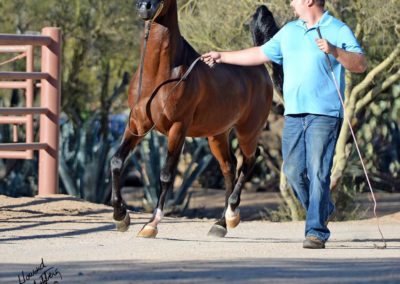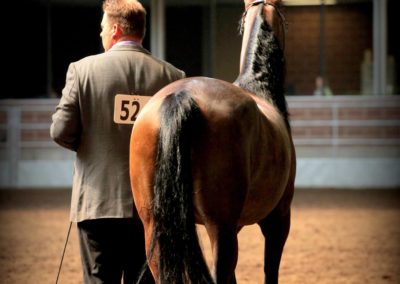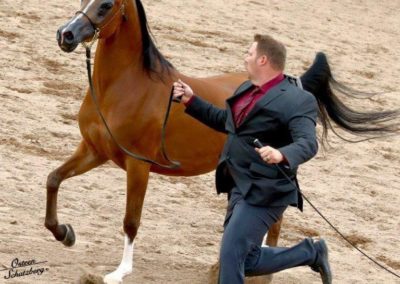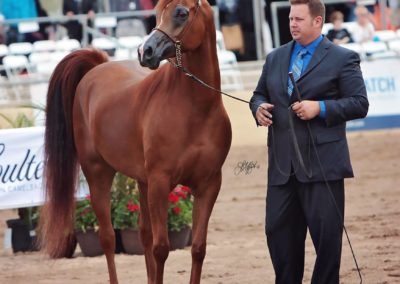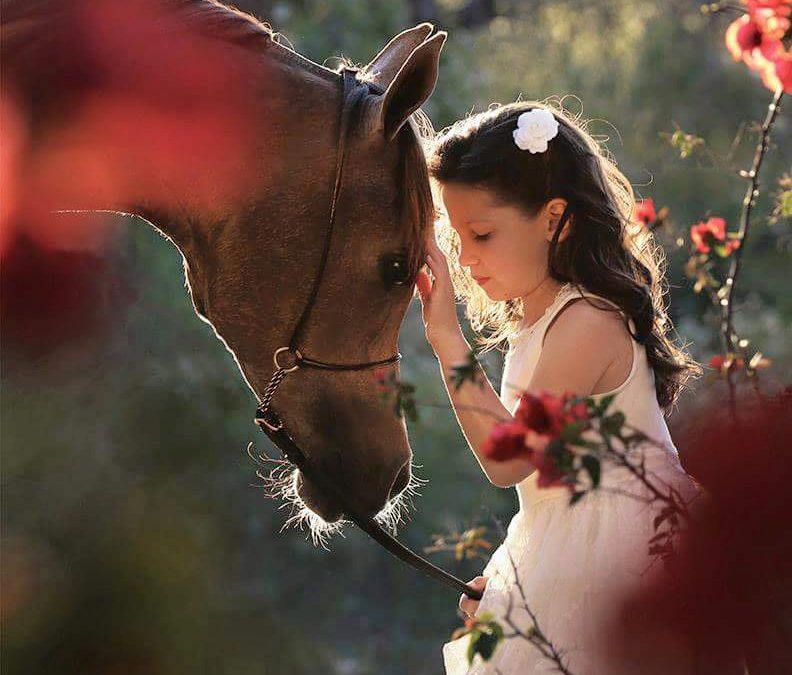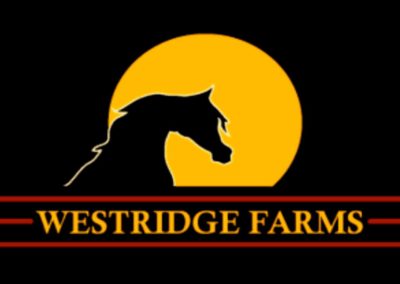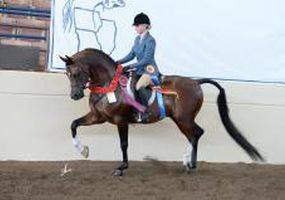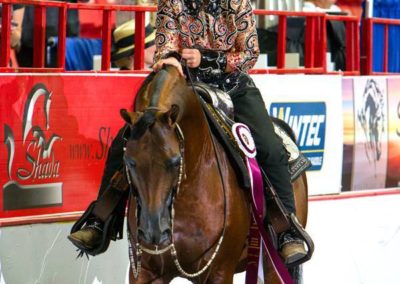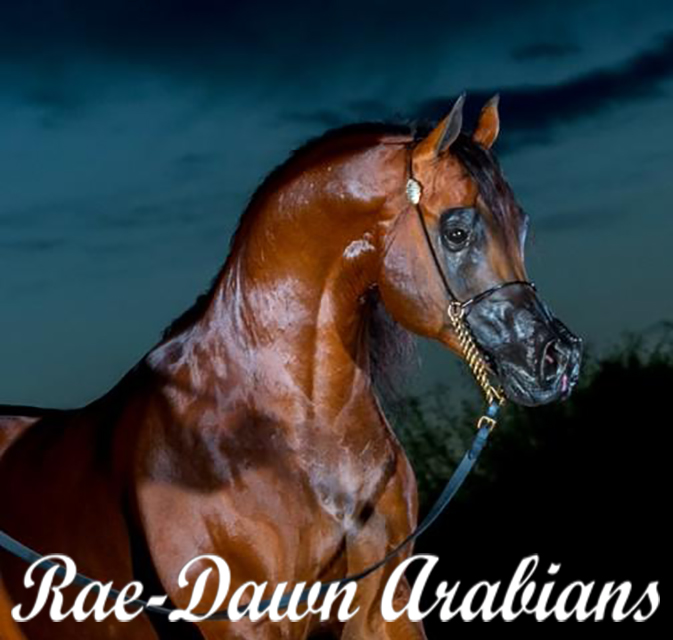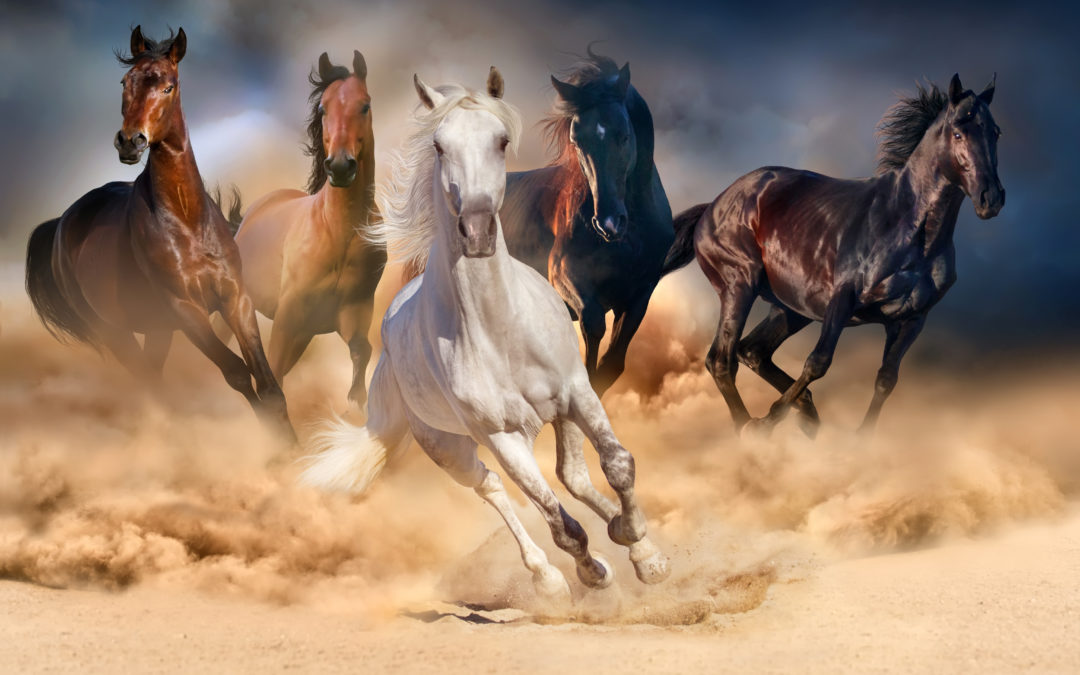
An Arabian Romance

An Arabian Romance
Arabians have a captivating background full of legends, myths and a rich history. It is one of the things that makes the breed such a treasure. One of the most intriguing myths is that of the Al Khamsa, or, The Five. The Al Khamsa is thought to be the Original group of mares responsible for the foundation of the Arabian breed. The origin of these mares is arguably a myth, as there is no objective historical way to prove this. Arabians are one of the oldest breeds in existence, and their lineage can be traced back to desert breeding.
In the beginning of Arabian selective breeding and registry, there was no particular breed standard, mainly breed characteristics/temperament traits, rather than physical appearance. It was necessary for the Arabian to have specific characteristics in order to survive in the harsh desert climates. The tight knit bond between horse and human was imperative. The horses had to rely on humans for food, water and shelter. Mares were held at a higher value over stallions due to quietness while executing specific war moves and a more mild temperament. Loyalty, soundness, stamina, courage, and willingness were all necessary for this coexistence, and the highly valued horses were often brought into the tents with the families to protect them from thievery and the harsh climate.
The exact location of origin is still not stapled down, but certain hypothesis suggest the Arabian mainly originated along the northern edge of the Fertile Crescent. Others suggest it was the southwestern corner of the Arabian Peninsula. The Bedouin people are considered the first to domesticate and breed Arabians, and they held these horses to a god-like standard and treasured them above many material possessions.
Legend tells of a group of Bedouin boys who go out into the desert as a test of their manhood. The boys come across a group of what was considered sacred, untouchable mares. The boys spent many days and nights in the desert attempting to capture a mare of their own. They were sure that by capturing one of these sacred mares that they would become highly respected and gain celebrity amongst their people. After many attempts to trap the mares in gullies or forcefully manage them, the boys learned that they were going to have to work with the mares and create a connection and a bond in order to gain their trust. They were going to have to respect them if they were going to get anywhere near them. These Bedouin boys successfully captured five mares of their own, proudly riding them back into their village feeling like kings.
The mythology of the five mares varies in its tale, especially the mares’ origin and how they came to be. As one story goes, the boys gifted the mares to King Solomon, who added these mares to his treasured group of horses. King Solomon saw the value in these mares and decided to put them to the ultimate test. After several days in the desert with no food or water, King Solomon released his herd of mares to a nearby watering hole. As the mares were approaching the water, King Solomon blew his war horn just as they were about to finally reach for a drink. Only five mares lifted their heads and returned at the sound of the horn, faithfully upholding their loyalty. These mares were then appointed to be the foundation breeding stock of King Solomon, and considered the beginning foundation of the Arabian breed.
These five mares made up the original five “strains” of Arabians and can be found in written records. Around 2% of the Arabian breed can be traced directly back to these strains – the Keheilan, Seglawi, Abeyan, Hamdani and Hadban. They are the “Al Khamsa” Arabians, and there are groups today that strive to protect this legendary heritage. In the beginning stages of selective breeding of Arabians, Bedouins used oral tradition, swearing oaths of the purity of the horses. Later, written records were made, and eventually, the Arabian registry was created and soon horses were being exported to different countries, some for pure Arabian breeding, and some were exported to incorporate into other breeds for improvement.
The Arabian breed and its history is fascinating, and the mythology surrounding its origin is rich in romanticism. Arabians are thought to date back somewhere around 1800-2000 BCE, and even though the breed standards have definitely changed, there are still characteristics that can be contributed to their desert heritage, including their remarkable loyalty and connectedness with humans. Paintings and stories of these mares are abundant while tracing back through Arabian history. Whether the mares’ origin is fact or fiction, the historically acclaimed characteristics of the breed are still prominent in the modern day Arabian. Undeniable stamina, strength, loyalty, soundness of mind and body, beauty and good nature are continued in today’s breeding standards.
Author:
Jessica Murray


